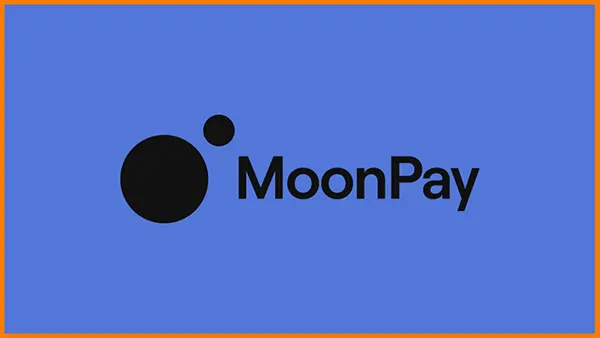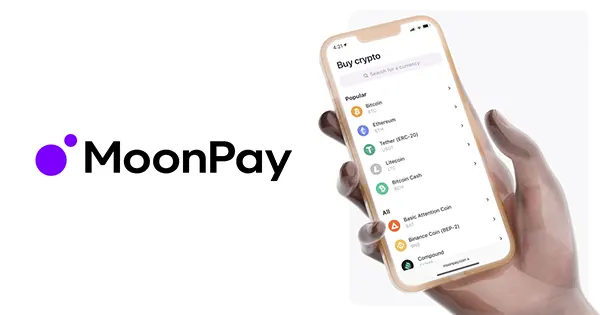
MoonPay: Integrating Crypto and Fiat Payments for Online Casinos
MoonPay has become one of the most prominent payment solutions for bridging traditional finance and the digital asset market. By 2025, the company has established itself as a reliable intermediary for online casinos seeking to accept both fiat and cryptocurrency payments in a seamless, secure manner. With its technology, players can use debit or credit cards, bank transfers, or local payment methods to purchase cryptocurrencies instantly, which can then be used for gaming deposits. MoonPay’s evolution also includes partnerships with major financial institutions and card issuers, allowing for innovative integrations such as prepaid Mastercard cards linked to stablecoin balances.
How MoonPay Converts Traditional Payments into Crypto
The core strength of MoonPay lies in its on-ramp technology, enabling users to convert traditional currencies into cryptocurrencies within seconds. For online casinos, this removes the barriers associated with setting up complex crypto payment infrastructures. A player can simply choose the MoonPay option at checkout, select their preferred fiat currency, and have the equivalent amount of crypto deposited directly into their casino account wallet. The process involves automated KYC checks, anti-fraud systems, and real-time transaction tracking, making it both user-friendly and compliant with international regulations.
This service supports a wide range of cryptocurrencies, including Bitcoin, Ethereum, and stablecoins like USDC and USDT, which are increasingly popular in gambling environments due to their price stability. By accepting multiple crypto assets, casinos can cater to a global audience without facing the currency conversion issues associated with purely fiat-based systems.
Furthermore, MoonPay’s integration into online casinos does not require players to have prior knowledge of crypto exchanges or blockchain mechanics. This “frictionless” approach ensures that even users with no cryptocurrency experience can complete their payments without technical complications, making it a preferred choice for many gaming operators.
Benefits for Online Casino Operators
From the operator’s perspective, MoonPay brings significant advantages. First, it reduces the reliance on traditional banking networks, which can impose restrictions or higher fees on gambling transactions. By offering cryptocurrency as a parallel payment option, casinos can avoid many of these limitations while expanding their potential user base.
Second, transaction processing speed is a key factor. Crypto payments through MoonPay are settled much faster than traditional bank transfers, meaning players can start playing almost immediately after making a deposit. This can lead to increased player satisfaction and retention rates.
Finally, MoonPay’s regulatory compliance framework ensures that operators can confidently process payments without risking violations of anti-money laundering (AML) or counter-terrorism financing (CTF) laws. The system includes built-in reporting and monitoring tools that help casinos meet legal requirements in multiple jurisdictions.
Integration with NFTs and Digital Assets
MoonPay’s capabilities extend beyond standard crypto transactions. In recent years, the company has developed infrastructure to support NFT purchases using fiat payments. For online casinos, this opens the door to innovative loyalty programmes and in-game asset trading. Players could, for instance, purchase exclusive casino-branded NFTs that unlock bonuses, access to VIP events, or unique game features.
The NFT market has shown resilience and adaptability, and MoonPay’s fiat-to-NFT technology makes these assets accessible to players who may never have interacted with blockchain marketplaces. This creates a new monetisation channel for casinos, allowing them to diversify their offerings and enhance engagement.
Additionally, MoonPay’s partnerships with NFT marketplaces and gaming platforms ensure that any NFT integration is supported by secure payment processing, protecting both the operator and the player from fraudulent transactions. This ecosystem can be tailored to suit specific brand strategies within the gambling industry.
Examples of NFT Use in Casinos
Some casinos are already exploring the use of NFTs as player rewards. For example, a player might earn a limited-edition NFT after reaching a certain milestone in loyalty points. This token could then be traded, sold, or redeemed for exclusive in-game advantages.
Another application is in the form of collectible digital art tied to a casino brand. By offering unique, verifiable digital assets, casinos can build communities of players who share and promote these collectibles, effectively creating organic marketing opportunities.
Finally, NFTs could be used to grant access to special tournaments or events. Holders of specific tokens might be invited to participate in high-stakes games or private competitions, adding a layer of exclusivity and prestige to the gaming experience.

Future Outlook for MoonPay in the Gambling Industry
Looking ahead to 2025 and beyond, MoonPay’s role in the online gambling sector is expected to grow substantially. The company’s introduction of Mastercard cards linked to stablecoin balances marks a significant milestone. These cards allow players to spend their crypto holdings directly, both within and outside the casino environment, bridging the gap between digital assets and everyday purchases.
As regulatory frameworks for cryptocurrency continue to mature, MoonPay’s proactive compliance and partnerships with major financial institutions position it as a trusted payment processor for the industry. Casinos that adopt MoonPay will be able to adapt quickly to changing legal landscapes while maintaining a broad range of payment options for their customers.
Moreover, the demand for hybrid payment models—combining fiat, crypto, and tokenised assets—is on the rise. MoonPay’s ability to handle all these formats within a single, streamlined interface makes it a strategic choice for casinos aiming to stay competitive in a market where payment flexibility is increasingly tied to customer loyalty.
Challenges and Considerations
Despite its advantages, integrating MoonPay is not without challenges. Casinos must ensure that their jurisdictions permit cryptocurrency transactions for gambling, as some regions maintain strict prohibitions. Additionally, while MoonPay handles most compliance aspects, operators must still implement responsible gaming measures that account for the anonymity of crypto users.
Another factor is cost: while MoonPay offers convenience, transaction fees can be higher than traditional payment methods, depending on the user’s location and currency choice. Operators must weigh these costs against the potential for increased deposits and player acquisition.
Lastly, as with any payment system, security remains a priority. While MoonPay employs advanced encryption and anti-fraud protocols, casinos must complement these measures with their own cybersecurity strategies to ensure end-to-end protection of user funds and data.
